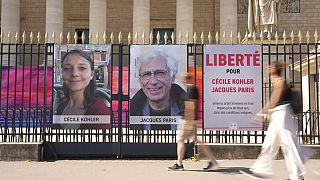Ivory Coast
Ivory Coast and Ghana, the world's two largest cocoa suppliers, on Thursday agreed to better cooperate on pricing and combating child labour in the industry.
Ivory Coast accounts for more than 40 percent of world output, and Ghana at least 20 percent. More than half of their growers live below the poverty line.
The two West Africa producers joined forces in 2019 to try to get more from the chocolate industry, obtaining a premium per tonne of cocoa.
But the coronavirus pandemic has hit global demand, and buyers are reluctant to see prices rise with a surplus in supplies.
Ghana's Foreign Affairs Minister Shirley Ayorkor Botchway said they had agreed to form a joint body to cooperate over research, price setting, and child labour.
"The two countries which produce about 60 percent of the world’s cocoa have coordinated on some of those issues before, but this new organization marks a formal step toward even more effective corporation," she said.
The world's chocolate market is estimated to be worth more than $100 billion, concentrated in a few multinational corporations.
Experts in Ivory Coast say that cocoa prices are still low, even with the so-called living income differential or LID supplement the two countries negotiated with chocolate makers to help farmers.
More than half of the million people working in the sector live below the poverty line, earning less than $1.2 per day according to the World Bank.
"The cost of even producing a bag of cocoa, is so much for us," Nana Kwabena PonKoh, a cocoa farmer said at the event.
"This kind of initiative is going to help all farmers of both countries."
AFP













01:04
South Africa reports new bird flu outbreak on poultry farms
00:00
Ivory Coast: Laurent Gbagbo and Tidjane Thiam's parties form a united opposition front
01:30
Abu Dhabi hosts first Global South Economic Forum
01:10
China to remove tariffs on goods from all African countries
01:52
138 million child workers globally in 2024, number down from 2020
02:25
São Tomé and Príncipe: helping fishers and their future